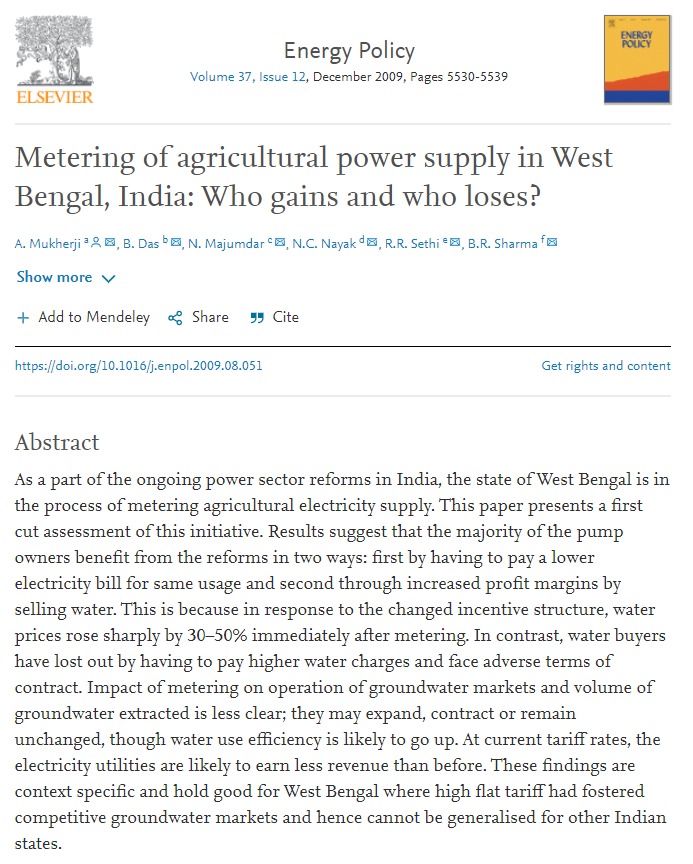
As a part of the ongoing power sector reforms in India, the state of West Bengal is in the process of metering agricultural electricity supply. This paper presents a first cut assessment of this initiative. Results suggest that the majority of the pump owners benefit from the reforms in two ways: first by having to pay a lower electricity bill for same usage and second through increased profit margins by selling water. This is because in response to the changed incentive structure, water prices rose sharply by 30-50% immediately after metering. In contrast, water buyers have lost out by having to pay higher water charges and face adverse terms of contract. Impact of metering on operation of groundwater markets and volume of groundwater extracted is less clear; they may expand, contract or remain unchanged, though water use efficiency is likely to go up. At current tariff rates, the electricity utilities are likely to earn less revenue than before. These findings are context specific and hold good for West Bengal where high flat tariff had fostered competitive groundwater markets and hence cannot be generalised for other Indian states. © 2009 Elsevier Ltd. All rights reserved.